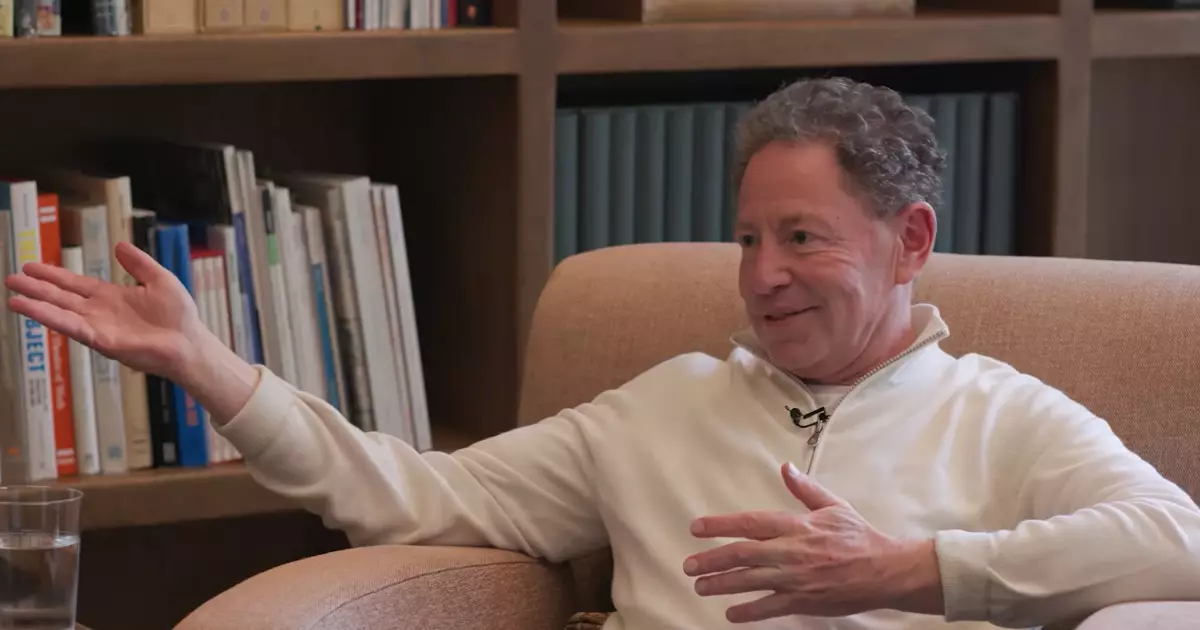In a recent episode of the Grit podcast, Bobby Kotick, the former CEO of Activision Blizzard, made controversial comments regarding the legal challenges faced by the company, labeling them as “fake lawsuits.” His remarks, made alongside former EA CEO Bing Gordon, have sparked immediate backlash, particularly from organizations advocating for workers’ rights. The Communication Workers of America (CWA) has responded vehemently, deeming Kotick’s assertions not only inaccurate but also deeply insulting to the individuals who have courageously stepped forward to share their experiences of harassment and discrimination. This article delves into the implications of Kotick’s statements and the broader context of workplace rights within the gaming industry.
According to Kotick, the allegations against Activision Blizzard, including those related to harassment and discrimination, were unfounded and part of a larger campaign by the CWA to bolster union membership. However, the CWA has categorically refuted these claims, providing historical context to counter Kotick’s narrative. In 2021, Activision agreed to an $18 million settlement with the Equal Employment Opportunity Commission (EEOC), which arose from serious allegations of sexual harassment and workplace discrimination. The fact that Kotick himself had, at one point, apologized for the misconduct occurring under his leadership raises significant questions about the veracity of his recent comments.
Kotick’s insistence that there were “fake lawsuits” only serves to undermine the legitimacy of the claims made by Activision Blizzard employees. The settlements reached and the public acknowledgment of workplace issues demonstrate a systemic problem that goes beyond mere allegations. By suggesting otherwise, Kotick not only diminishes the real trauma experienced by employees but also misleads the public regarding the company’s responsibility in handling workplace misconduct.
In response to Kotick’s claims, the ABK Worker’s Alliance—a union formed by employees of Activision Blizzard—has issued a powerful retort, emphasizing that the experiences of trauma, discrimination, and abuse among workers are palpable realities. They assert that the formation of unions within the company is a direct response to a failure of management to protect its employees. “Our unions were born from the very real and harmful way executives reacted,” the Alliance contends, encapsulating the urgency and necessity of their collective action.
This grassroots approach to labor organization is pivotal for creating an equitable workplace environment. The CWA has played a vital role in assisting game developers in unionizing, empowering workers to assert their rights and advocate for better conditions without intimidation or interference from management. Kotick’s departure as CEO is seen as a turning point, allowing employees to reclaim their voices that had previously been silenced under a culture of fear and neglect.
The remarks made by Kotick have broader implications for the gaming industry and corporate America at large. By dismissing serious allegations and framing legal challenges as mere nuisances, he reinforces a corporate mindset that prioritizes profit and image over employee welfare. This attitude can be detrimental not only to the individuals within the organizations but also to the industry as a whole, as it fosters a culture where workers feel unsafe and unprotected.
Further complicating the dialogue around workplace rights, such rhetoric often serves to drive a wedge between management and employees. When executives minimize or belittle the experiences of workers, it creates an environment of distrust. This divide is exemplified by Kotick’s pronouncements, which seem out of touch with the realities on the ground. For an industry that prides itself on creativity and innovation, the absence of respect for its workforce undermines the very essence of that creativity.
The ongoing discussions surrounding workplace justice at Activision Blizzard and similar companies highlight the urgent need for systemic reform. Employees and advocates continue to call for genuine accountability from leadership, emphasizing that meaningful change must be rooted in a commitment to protect and empower workers. Only through collective action and persistent advocacy can the gaming industry hope to reshape its narrative into one that values and uplifts all voices.
Kottick’s recent comments may have sparked outrage among workers and advocacy groups, but they also serve as a rallying cry for those seeking to forge a better future. The voices of workers are no longer relegated to the background; instead, they are taking center stage in the fight for justice and equitable treatment within the workplace. The true measure of success will lie in the ability of these organizations to stand united and push for the changes needed to create a safe, inclusive environment for all employees in the gaming industry and beyond.

